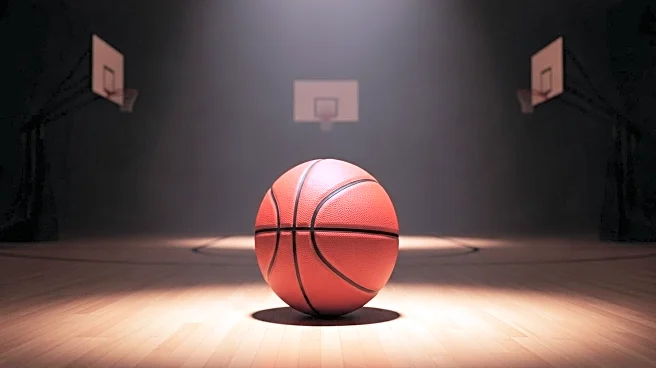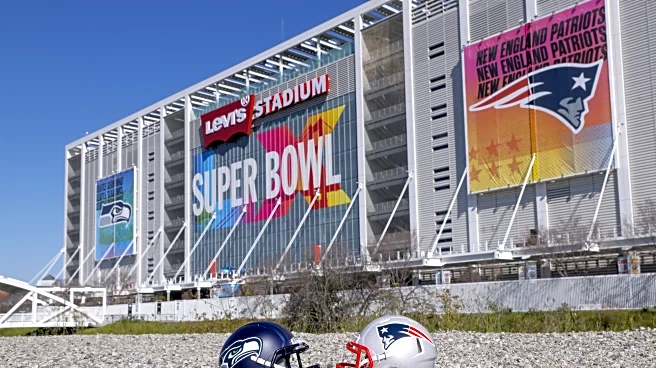What's Happening?
The NBA and the National Basketball Players Association (NBPA) have announced the establishment of the NBA Pioneers Classic, an annual event to honor the legacies of Chuck Cooper, Earl Lloyd, and Nathaniel 'Sweetwater' Clifton, the first African Americans to play in the NBA during the 1950-51 season. The inaugural event will take place on February 1, 2026, in Boston, coinciding with the start of Black History Month. The Boston Celtics will face the Milwaukee Bucks, with both teams wearing commemorative patches and warm-up shirts. The NBA Foundation and NBPA Foundation will donate $750,000 to create an NBA Pioneers Scholarship to support Historically Black Colleges and Universities (HBCUs) academic and athletic programs.
Why It's Important?
This initiative highlights the NBA's commitment to honoring its history and promoting diversity within the sport. By recognizing the contributions of Cooper, Lloyd, and Clifton, the NBA not only celebrates their pioneering roles but also underscores the importance of diversity and inclusion in sports. The scholarship program aims to support HBCUs, which play a crucial role in providing educational opportunities to African American students. This event and the associated scholarships could inspire future generations and strengthen ties between the NBA and educational institutions.
What's Next?
The NBA Pioneers Classic will become an annual event, ensuring ongoing recognition of these trailblazers. The NBA and NBPA plan to continue honoring these pioneers during Black History Month and the NBA All-Star 2026 in Los Angeles through community events and educational initiatives. The scholarship program will expand, allowing more HBCU athletic departments and former NBA HBCU Fellowship program participants to apply, potentially increasing educational and athletic opportunities for students.
Beyond the Headlines
The NBA's initiative may encourage other sports leagues to similarly honor their pioneers and promote diversity. This could lead to broader cultural shifts within sports, emphasizing the importance of historical recognition and support for minority communities. The event also serves as a reminder of the progress made in racial equality within sports and the ongoing need for advocacy and support.









